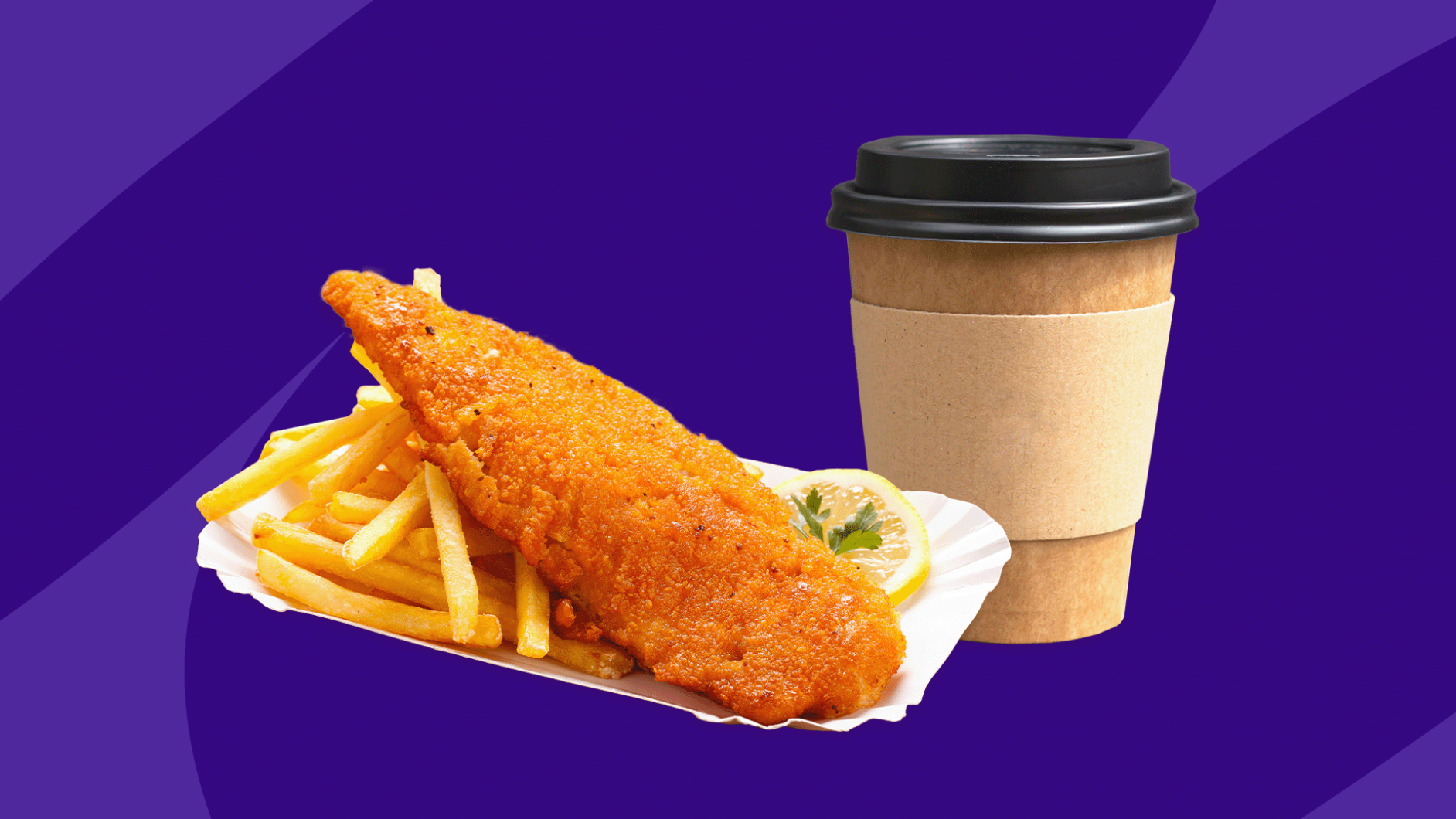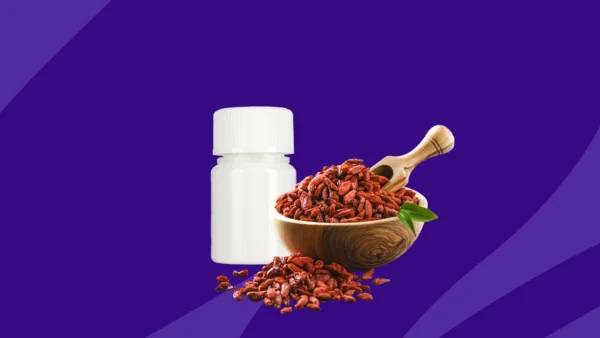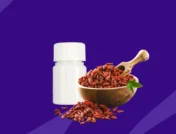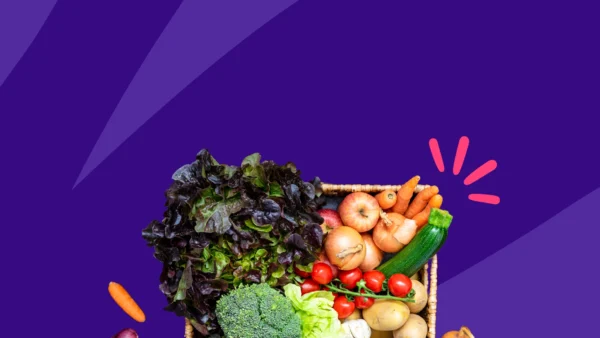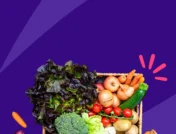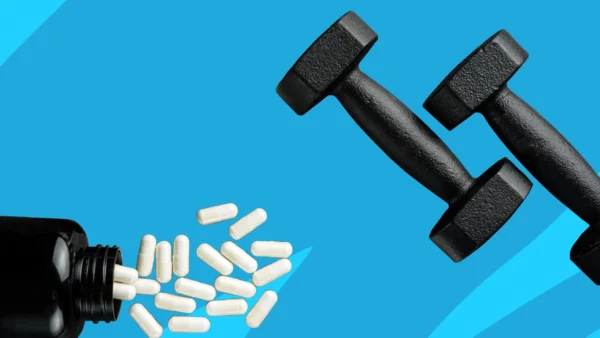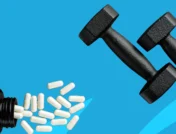Most of us have probably had the worrying experience of sitting perfectly still—at our desks, in the car, on the couch—and feeling our heart skip a beat for no obvious reason. Or maybe it seems as if your heart was fluttering for a few seconds, or pounding rapidly, or even that it did a weird somersault move inside your chest.
These are the sensations usually associated with heart palpitations, or brief interruptions to your normal heart rate or heart rhythm. While they are usually not related to heart problems or an actual heart condition (and therefore are often harmless), they can be alarming if you’re not expecting them…like, for example, if you just polished off a big, hearty meal and are wondering why your heart is suddenly racing.
Heart palpitations are not uncommon after eating certain foods or drinking certain beverages. But what does your diet have to do with your heartbeat, and why do some foods always seem to trigger palpitations? More importantly, should you avoid those foods if you have regular heart palpitations or are at high risk for a heart attack? Here’s what you need to know about the foods and drinks that can send your heart fluttering.
Why do I get heart palpitations after I eat?
Heart palpitations aren’t uncommon: One frequently cited study of primary care patients found that 16% reported having them to their healthcare provider. They can happen to teenagers and adults of all ages, though they may become more common as you get older.
In many cases, an irregular heart rhythm occurs after eating because some component or ingredient of that food causes changes to your heart rate. For example, spicy and caffeinated foods can both make your heart beat faster, disrupting its normal rhythm.
That said, there are some underlying conditions that cause them, though these aren’t always heart-related either; pregnancy, anemia, an anxiety disorder, or a thyroid issue can lead to more frequent bouts of palpitations. There are drugs that can cause heart palpitations, too; both prescription medications, like beta blockers, OTC medications like pseudoephedrine, and recreational drugs that can trigger them.
Less commonly, cardiac conditions like cardiomyopathy and heart arrhythmias are the source of the problem.
What foods cause heart palpitations?
Any foods that typically increase your heart rate or are known to cause heartburn—like alcohol, caffeinated beverages, and spicy foods—can cause heart palpitations, too. But those aren’t the only ones; foods high in sugar and refined carbohydrates can cause heart palpitations to flare up, especially in people with low blood sugar.
It’s also important to note that gastrointestinal distress symptoms can overlap with heart rate symptoms, too.
“The stomach and the esophagus are situated very close to the heart, so sometimes we sense stomach upset as palpitations,” says Brian Bostick, MD, a cardiologist at MU Health Care in Missouri, adding that digestive issues can also cause some palpitations if they are stressing your body too much, or if you are having difficulty digesting medications or foods.
7 foods to avoid if you have heart palpitations
While diet alone isn’t usually a cause of heart palpitations, certain foods and drinks can trigger them. Having infrequent rounds of palpitations after eating or drinking something on this list doesn’t mean you need to avoid it completely, but you may want to moderate your intake.
If you do have an underlying condition, consuming these things in your diet can increase the frequency and severity of heart palpitations. In that case, you may want to avoid them or greatly reduce your intake. Try keeping a food diary to track which foods you ate prior to experiencing palpitations.
1. Caffeine
One of the biggest food-related causes of heart palpitations is caffeine, which makes sense because it’s a stimulant (they’re literally designed to speed up your nervous system). Remember that caffeine can be found in some foods, like chocolate, and many different types of drinks, including coffee, some teas, and some sodas.
While eating a few small pieces of chocolate isn’t likely to give you a caffeine jolt strong enough to trigger palpitations, Dr. Bostick says it’s important to be careful with beverages containing large amounts of caffeine, such as energy drinks and several cups of coffee.
2. Fatty foods
You just polished off a large, indulgent meal, and now you have an uncomfortable, overstuffed feeling and a racing heart? It might be high amounts of saturated fat and cholesterol that are to blame. One study in the Journal of Nutrition found that a single high-fat meal increased several metrics of cardiovascular reactivity (like high blood pressure) in people with otherwise normal blood pressure levels when compared to a low-fat meal. If you notice this association, try substituting saturated fats with unsaturated fats such as olive oil and avocados to see if that helps.
Some rich foods, like certain types of aged cheeses and cured or processed meats, are not only high in fat but also an amino acid called tyramine, which can interfere with normal blood pressure levels.
3. Alcohol
Drinks that contain large amounts of alcohol or excessive alcohol consumption can cause heart palpitations, says Dr. Bostick: “Heavy intake can trigger the heart to go out of rhythm and stress the heart, [so we] really recommend consuming alcohol in moderation.”
Some research even suggests that moderate consumption of alcohol can increase your chance of having an irregular heartbeat, particularly if you drink a moderate amount consistently.
4. High-glucose foods
Foods high in carbs or sugar can trigger heart palpitations, especially for people with hypoglycemia, says Kimberley Wiemann, a Long Island-based registered dietitian.
“People that typically have a low blood sugar level are at higher risk for heart palpitations from eating high carbohydrate or sugar foods, such as bread, pasta, candies, cakes, or ice cream, because of the sudden spike in blood sugar levels they may cause,” she explains.
5. Chocolate
Chocolate gets its own spot on this list partially because it contains caffeine and partly because of a compound called theobromine, which can cause arrhythmias, including heart palpitations. But most people don’t have to give up chocolate completely; you can keep your caffeine intake short and sweet (pun intended!) to reduce the amount of caffeine in each serving or opt for milk chocolate, which has a little less caffeine than dark chocolate.
6. High-sodium foods
While eating foods high in sodium may not technically increase your heart rate, they can raise your blood pressure, making you more likely to feel that pounding heart sensation after a meal.
Eating a consistently high-sodium diet also puts you at a higher risk for heart arrhythmias in general, like atrial fibrillation; heart palpitations are one of the most common signs of atrial fibrillation, so moderating sodium intake is especially important if you experience regular palpitations or are otherwise at risk for heart disease.
7. Spicy foods
Contrary to popular myth, spicy foods aren’t bad for your health: They can actually improve your digestion, heart health, inflammation, and metabolism. But they can also cause a little bit of momentary stress on your system, too, when the temperature gets hot enough. Sweating, excessive thirst, and increased heart rate are all typical signs that you’ve ingested something super spicy and are experiencing some overall irritation in your body.
What’s more, some of what you feel as heart palpitations after eating a spicy meal may actually be related to indigestion or acid reflux, as Dr. Bostick noted earlier.
Herbs and supplements to avoid for heart palpitations
Don’t forget about herbs, vitamins, and dietary supplements when taking an inventory of the things in your diet that might be causing heart palpitations—they can have an effect on your heart rate, too. Herbal stimulants, such as bitter orange, ephedra, guarana, and maté, can individually cause negative cardiovascular effects and may also cause interactions with other drugs that trigger palpitations.
According to Wiemann, some research shows that too much vitamin D supplementation can cause heart palpitations—although, interestingly, some research also shows that low levels of magnesium, calcium, potassium, and vitamin D can cause heart palpitations, too.
The takeaway? Always check with your provider before taking any herbs or supplements because it’s important to make sure they won’t interact with other drugs you’re taking and that you add the right amount to your diet to prevent worsening your symptoms.
Other prevention methods for heart palpitations
Whether you’ve chosen to avoid the foods and drinks that trigger your heart palpitations or not, you may be looking for additional ways to reduce these disruptive episodes.
To prevent heart palpitations, you can make heart-healthy lifestyle changes, such as:
- Reduce the amount of stress and anxiety in your life, either through meditation, exercise, relaxation techniques, therapy, or medication.
- Stay hydrated by drinking the recommended amount of water each day (dehydration can cause palpitations).
- Ask your provider to check your thyroid health and iron levels, both of which can cause palpitations when out of balance.
- Be mindful of the prescription drugs you take and how they interact with your stomach and heart. Sometimes blood pressure medications relieve heart palpitations, and other times, they cause palpitations as a side effect. Dr. Bostick also notes that medications that upset the stomach or stress your system—like stimulant medications for ADHD, for example—can also cause you to feel palpitations.
- Avoid using tobacco products or recreational drugs.
- Limit OTC drugs containing pseudoephedrine, like some cough and cold medications.
- Be aware of food-drug interactions with the medications you take, especially ones used to control blood pressure or reduce palpitations. Wiemann says that, in addition to avoiding grapefruit products when taking calcium channel blockers or beta-blockers, people taking beta-blockers should also check with their provider before taking any additional vitamins or supplements—this can lead to high blood potassium levels, which can cause heart palpitations and other serious conditions.
If you are suddenly experiencing more frequent palpitations and can’t identify a dietary or lifestyle cause, if the palpitations are affecting your quality of life, or if they are accompanied by symptoms such as sweating, dizziness, shortness of breath, or chest pain, talk to a healthcare provider ASAP.
“Just about every person will have a few extra beats from time to time,” says Dr. Bostick, “…[but] uncontrollable or symptomatic palpitations that cause the heart to beat too fast or cause shortness of breath or dizziness are more likely to happen in those with underlying heart disease, prior surgeries on the heart, or underlying medical issues that put stress on the heart.”



